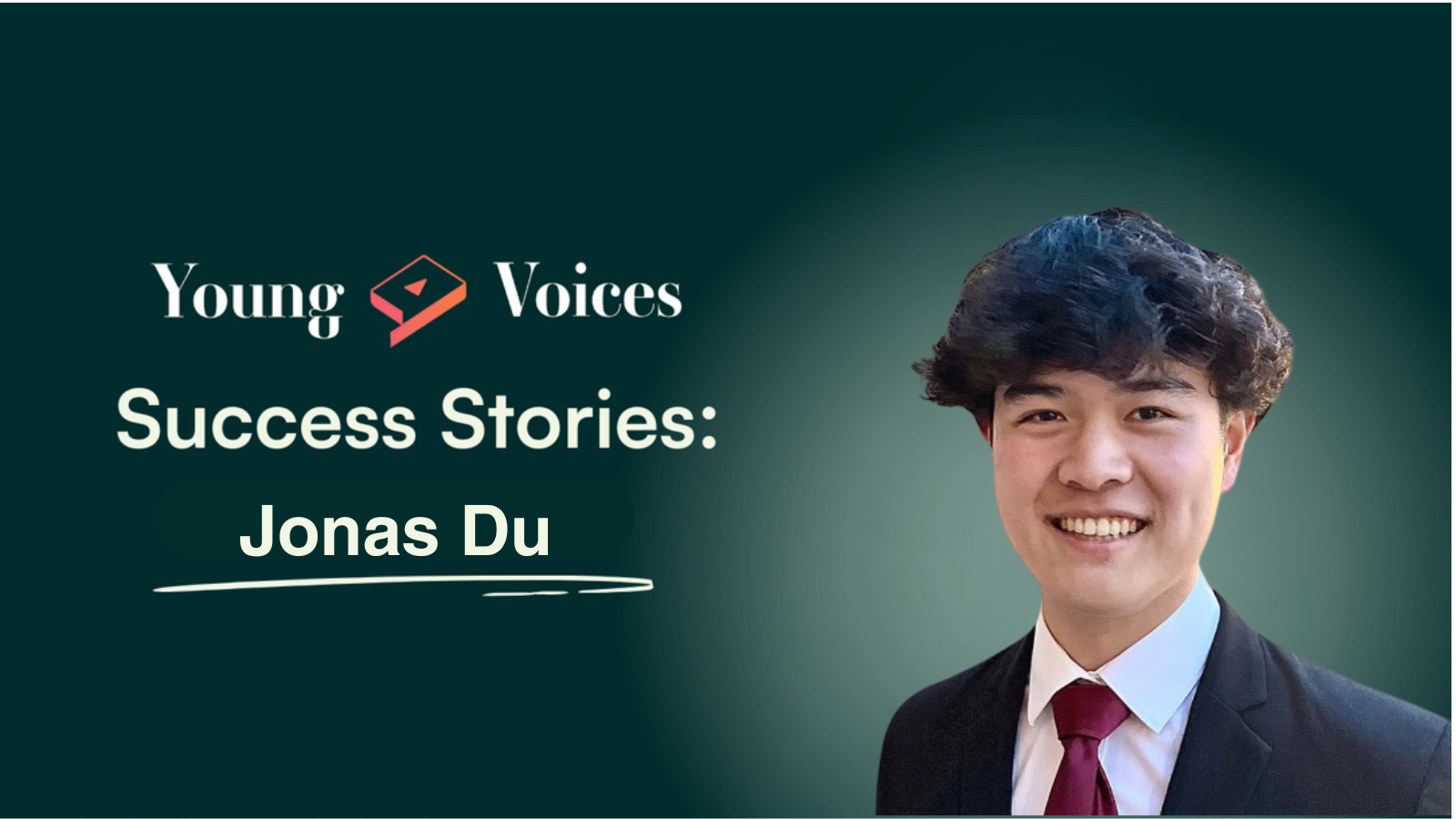
Jonas Du is a Young Voices alumni and commentator who was reporting on the ground at Columbia University in 2023 when the anti-Israel protests broke out on campuses. He has recently started a new role as a full time fellow at the Free Press.
Jonas Du’s Success Story Interview:
You were on the scene reporting on the protests at Columbia University following the October 7th Hamas attacks in Israel. What was the most surprising takeaway from your experience reporting during these campus protests?
The pursuit of objectivity and balance, as much as they are lauded as journalistic ideals, will lead you astray when you're confronted with extremism. When students on your campus are calling for the destruction of Israel, you must not shield their rhetoric under the guise of "pro-Palestinian activism." When they support terrorism, you must not shy away from calling out those who are pro-Hamas. When they engage in illegal or rule-breaking activities, you must not simply characterize it as a "protest." The pursuit of objectivity and balance in the legacy media, including at Columbia, has had the effect of protecting the anti-Israel cause. Of course, it is important to distinguish between what the facts are and what your opinion is, but objectivity and balance are not always in alignment with truth-seeking.
What topic do you think is the least talked about within mainstream media or opinion journalism that deserves more attention?
The way mainstream journalism is done often implicitly ignores basic economics. Policies and proposals are often presented on their face, with no attention given to their downstream effects. Economics is all about tradeoffs and incentives, and journalists tend to ignore both, which encourages readers to engage in binary thinking influenced by critical theory. A policy that helps the 1 percent comes at the expense of the working class. A law that deregulates an industry harms consumers, and so on. But this is not how the world works. Reductions in government-provided student loans, for instance, will be framed as reducing college access, but there's usually no discussion of how increased loan availability leads universities to jack up their sticker prices. Cuts to welfare benefits are framed as depriving people of much-needed assistance, but there's no discussion of whether the benefits are the most efficient way to redistribute wealth or whether they distort work incentives. Journalists should strive to explain, at least at a basic level, the economic tradeoffs behind public policy.
What journalistic quality do you believe that we need more of in the press today?
See first answer
Which media placement that the Young Voices content team helped you place are you most proud of?
I was shocked that the very first op-ed I wrote with Young Voices got placed in USA Today. In the fall of 2023, I wrote about the budding Freedom Conservative movement—a response to the National Conservative movement that seemed willing to abandon the principles of individual and economic liberty. My argument was that while MAGA turns off Gen Z, Freedom Conservatism could be a path toward expanding youth support of the Republican party. To my surprise, USA Today had interest in the story, helping kickstart my writing career.
You recently started a new role as a reporter at the Free Press. What most excites you about the work you are doing there?
It is an honor at my age to have a platform at The Free Press to write stories that rise above the daily news cycle and instead offer deep analysis and sensemaking about the biggest political and cultural topics of our moment. Very few of our stories are "assigned" like at traditional outlets, meaning I can let my interests drive my reporting. I spend my days thinking critically about the political world, and turning those thoughts into newsroom products. I am excited to cover topics like the American right, Gen Z culture, higher education, and national politics.
What is the biggest way Young Voices has helped you get to where you are today?
Young Voices was my first introduction to the heterodox, pro-liberty intellectual space. The progressive left dominates so many of our elite institutions that the center-right space is a small world—through Young Voices, I have met countless people in the knowledge economy in this space which has led me to the career I have today.
You've built an impressive background in journalism at such a young age. What advice would you give to budding journalists who might be interested in pursuing a similar path?
We live in the age of democratized journalism. If you have an idea, you don't need to wait for a prestigious outlet to show interest before you write it. If you don't have the connections to get your writing placed yet, post it on Substack or X! Yes, journalistic institutions provide legitimacy. But at the same time, anyone can write, report, and get noticed. Lastly, apply to Young Voices!
Support Young Voices' work in empowering rising leaders for liberty like Jonas!